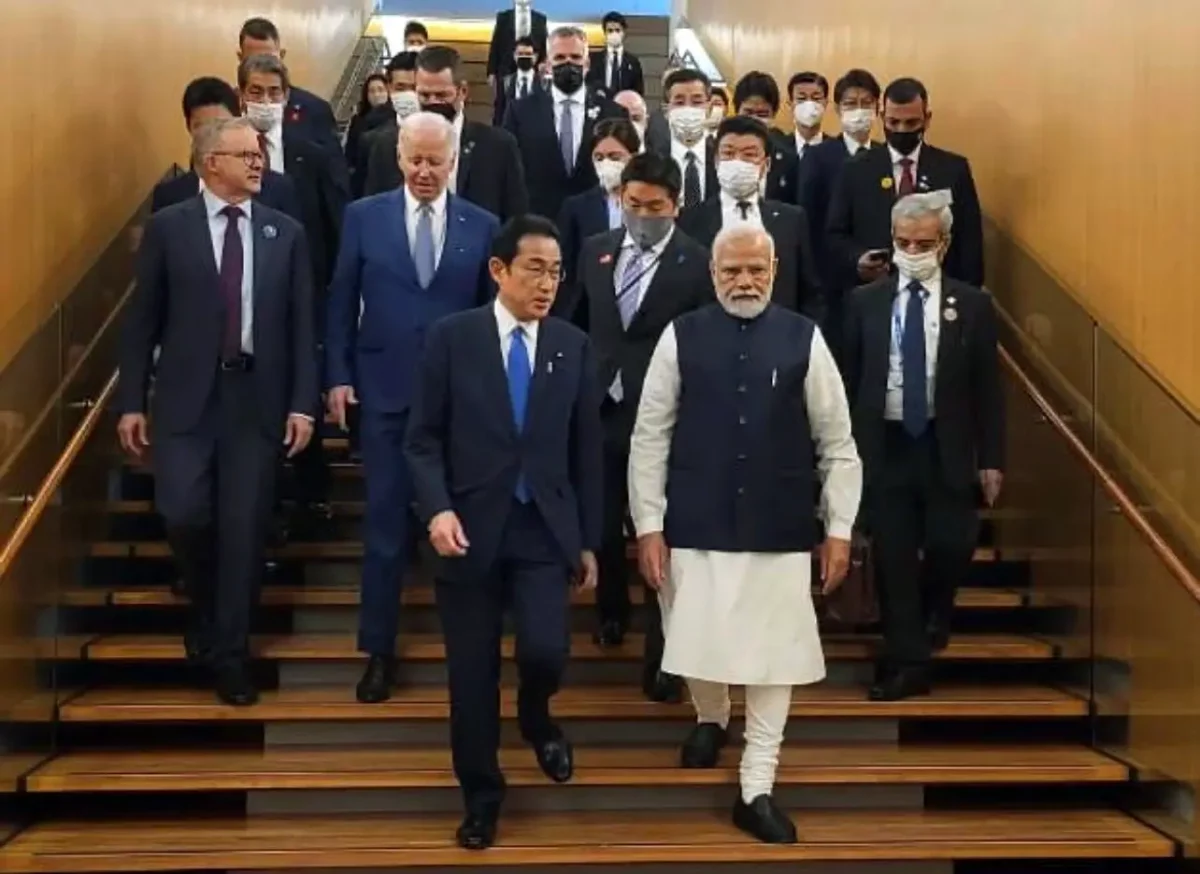Has the Quad eventually found its footing–to cut down Chinese hegemony in the Indo-Pacific and simultaneously bring development and tech benefits to the countries in a vast region that ranges from east Africa to the Pacific. In their joint statement, the four nations promise to work on peace and security, health and climate change, infrastructure and technology.
The second in-person summit, also the fourth meeting overall, of the Quad leaders–Prime Ministers Anthony Albanese of Australia, Narendra Modi of India, Fumio Kishida of Japan, and President Joe Biden of the US, has accepted the global turmoil that is devastating nations and now sharpens its focus to reducing "human and economic pain".
#LIVE | I thank Japanese PM for this warm welcome. Today Quad is expanding and becoming more effective. Quad working with a constructive agenda for Indo-Pacific: PM Modi at Quad Summit 2022
Tune in to watch – https://t.co/hLYdf2DXHS pic.twitter.com/QBbiRYCoQr
— Republic (@republic) May 24, 2022
China and the rule of law
Not taking its eyes of China, the four-member Quad has underlined its commitment to the Info-Pacific region, stressing on "the principles of freedom, rule of law, democratic values, sovereignty and territorial integrity, peaceful settlement of disputes without resorting to threat or use of force, any unilateral attempt to change the status quo, and freedom of navigation…"
Within this region, China has grabbed territory in India, browbeaten countries like Taiwan through its air force, used its navy to push back Vietnamese and Philippine vessels from their own waters and laid claim to islands in the South China Sea.
Mentioning peace and stability in their joint statement, the four nations mention their support for the south-east Asian nations, Pacific island countries want a "complete denuclearization of the Korean Peninsula, consistent with United Nations Security Council Resolutions (UNSCRs)".
Taking into account Indian sensitivities, the joint statement condemns terrorism and mentions the terror attacks on India–26/11 in Mumbai and Pathankot in 2016, both of which had heavily-trained terrorists pushed in by Pakistan.
Maritime Domain Awareness and HADR
Another initiative that will have an impact on China is the launch of the maritime domain awareness initiative–the Indo-Pacific Partnership for Maritime Domain Awareness (IPMDA), which will not only curb illegal fishing but also respond to humanitarian and natural disasters. The IPMDA will work in Indo-Pacific nations and cover the Indian Ocean, south-east Asia, and the Pacific Islands.
Covid-19 and vaccines
Talking about the pandemic that devastated societies and nations, the four nations said they have collectively pledged approximately $5.2 billion to the global COVAX facility and delivered over 670 million doses worldwide. They have promised to keep the supply open, improve global health and strengthen pandemic prevention, preparedness and response (PPR).
Infrastructure and debt
The Quad plans to extend more than $50 billion in infrastructure and investment in the Indo-Pacific in the next five years. They will also address the issue of mounting debt in the region through the 'Quad Debt Management Resource Portal'.
Once again the mention of debt is related to China because of its debt diplomacy and expensive infrastructure traps that have sucked out the financial resilience of small nations in Asia and Africa which are now struggling to pay mounting loans for infrastructure that does not deliver.
Climate change issues
With mounting concerns over worsening environment, the Quad grouping has launched "the 'Quad Climate Change Adaptation and Mitigation Package (Q-CHAMP)' with "mitigation” and "adaptation” as its two themes". The joint statement covers the entire gamut of climate issues–raising climate finance, strengthening clean energy supply chains and engaging with the Pacific island countries.
Emerging technologies and space
In this field the four countries say that they will focus on harnessing critical and emerging technologies for prosperity and security. The Quad will look at 5G technologies and those that go beyond 5G and address vulnerabilities in global semiconductor supply chains.
The Quad also seeks to address "challenges such as climate change, disaster preparedness and response, and sustainable uses of oceans and marine resources through space technologies and applications. The four-member countries plan to collaborate with each other in field of space and improve public access to Earth observation satellite data and applications.
The four leaders now plan to meet in Australia in 2023. During the course of the year they plan to hold regular meetings of their foreign ministers.




















